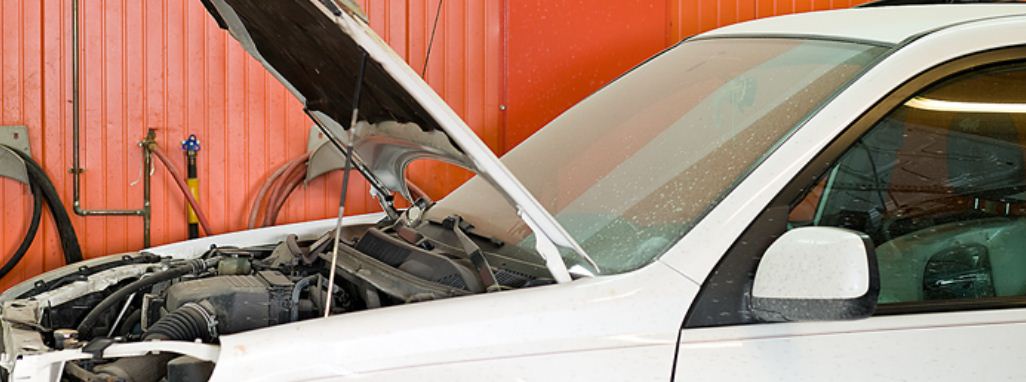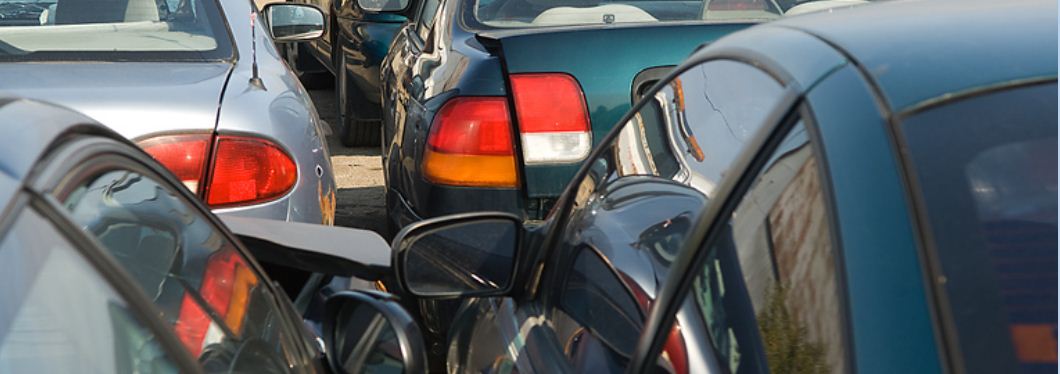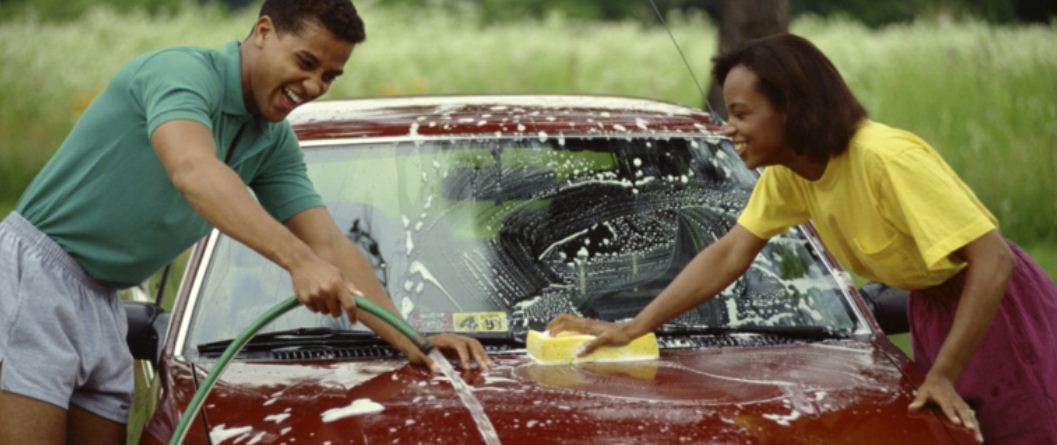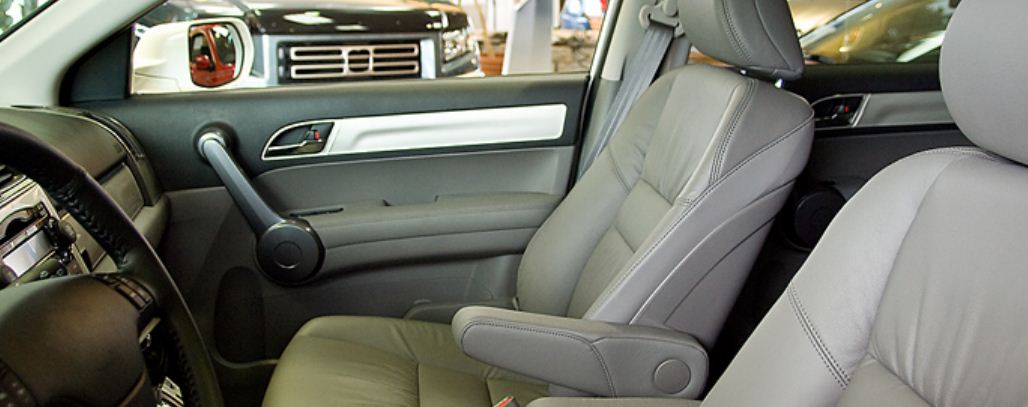35 Vital Tips to Keep Your Car Well-Maintained and Save You Money on Car Repairs

It is essential to maintain your car yourself, especially if you need more time or resources to get it fixed by a mechanic.
This DIY blog saves the cost of having a mechanic do it and reduces the time spent waiting in line at the dealership. You can save money and learn more about your car by servicing it yourself with the right tools and knowledge.
Maintaining and servicing your car is a crucial aspect of owning a vehicle. Regular car maintenance helps you save money in the long run and ensures your vehicle runs smoothly and safely.
While most people take their vehicles to a professional mechanic, several effective ways exist to maintain and service your vehicle yourself.
This article is about how to keep your car in excellent condition. You will learn some invaluable tips that could extend your vehicle's life and put you on the path toward getting a better automotive experience.
35 Vital Tips to Keep Your Car Well-Maintained and Save You Money on Car Repairs
There are 35 diy multiple ways to maintain and service your car by yourself, saving you money and ensuring that your vehicle is in good shape.
1. Check and change your car's oil regularly
Consistently topping up your car's engine oil is essential as it will help keep it running in optimum condition. Ensure you change the oil every 3,000 miles or sooner if you feel any strain on your engine. Most cars need an oil change every 5,000 to 7,500 miles.
Check your car's owner's manual to determine how often you should change your oil. Replacing your car's oil is simple; you must have the right tools. With these, the process only takes a few minutes, and you don't need specialized knowledge.
2. Keep your car's tires in good condition
Keeping your car's tires in good condition is vital for safety and performance. Check your car's tire pressure regularly and ensure it is inflated to the recommended pressure.
How many times have you noticed any damages or punctures on your tires? If the answer is more than twice, then make sure to get them checked. It doesn't cost that much to contain.
If you notice any bulges, cuts, or punctures, it's time to replace your tires. Rotating your tires regularly can prolong their lifespan and ensure even wear across all tires.
3. Maintain your car's battery
Your car's battery provides the electrical power needed to start your vehicle, and keeping it in good condition is essential.
Make sure your car's battery terminals are clean and free from corrosion. You can clean them using a mixture of baking soda and water. Also, regularly check your car's battery water level and top it up if necessary.
4. Replace your car's air filter
Your car's air filter helps prevent dirt, dust, and other debris from entering your engine. Over time, your car's air filter can become clogged, affecting your car's performance and fuel efficiency.
Replacing your car's air filter regularly is essential, and you can do it yourself with some basic tools. Check your car's owner's manual to determine how often you should replace your air filter. In most cases, replacing your air filter every 12,000 miles or 12 months is recommended.
5. Check and change your car's fluids
Your car relies on several fluids to operate correctly, including coolant, brake, power steering, and transmission. It's essential to check these fluids regularly and top them up if necessary.
You should also change your car's oil according to the manufacturer's recommended schedule. Most car fluids must be changed every 30,000 to 60,000 miles depending on the fluid type.
6. Keep your car's brakes in good condition
Your car's brakes are one of the most critical safety features, and keeping them in good condition is essential.
Check your car's brake pads and rotors regularly for wear and replace them if necessary. Also, ensure your brake fluid level is adequate and change your brake fluid according to the manufacturer's recommended schedule.
If you notice any issues while driving, such as squealing or grinding noise, vibrations, or a soft brake pedal, take your car to a mechanic as soon as possible.
7. Replace your car's spark plugs
Your car's spark plugs ignite the fuel in your engine's cylinders. Over time, your spark plugs can become worn or dirty, affecting your car's performance and fuel efficiency.
Replacing your car's spark plugs regularly is essential, and you can do it yourself with some necessary tools. Check your car's owner's manual to determine how often you should replace your spark plugs. In most cases, replacing your spark plugs every 30,000 to 50,000 miles is recommended.
8. Keep your car's exterior clean and protected
Keeping your car's exterior clean and protected can help prevent rust, fading, and other damage. Take special care when cleaning your vehicle to avoid getting water spots.
This can help prevent dirt buildup and smooth ride quality. Waxing your vehicle can help it stay shiny and look great. It's a good thing to do every 3-4 months. Additionally, consider using a car cover if you park your car outside to protect it from the elements.
9. Check your car's tires regularly
Your car's tires are crucial for safety and performance, and checking them regularly is essential. The tires you put on your vehicle must be inflated to the proper level and checked for weakness or bulging.
Tread evenness and the general area of the tire should be checked for signs of improper wear. Rotating your tires regularly is essential to ensure even wear and extend their lifespan.
Check your car's owner's manual to determine how often you should rotate your tires. In most cases, rotating your tires every 5,000 to 7,500 miles is recommended.
10. Listen to your car and take action
If you're driving and notice any unusual sounds or vibrations while the car is moving, you should use your cell phone to contact law enforcement immediately.
These could be signs of a problem with your car's engine, brakes, suspension, or other systems. Ignoring these signs could lead to costly repairs or even dangerous situations on the road. When you observe a warning light on your dashboard, promptly address something.
The system has already identified the problem, so there's no reason to ignore it! If you need clarification on what a particular warning light means, check your owner's manual or take your car to a mechanic. You'll get more safety and longevity from your vehicle if you take care of it.
But remember to have enough money set aside for the repairs. Removing and storing your snow tires in the fall can also help make all seasons a breeze on the road! By following these tips, you can keep your car running smoothly and avoid costly repairs in the future.
11. Keep your car clean and organized
Keeping your car's interior clean and organized can make a big difference in your driving experience.
A. How often should you check and change your car's oil?
B. What tools and knowledge do you need to service your car independently? Regularly vacuuming and wiping down surfaces can prevent dirt and dust from accumulating and improve the air quality inside your vehicle.
Consider investing in organizers or storage solutions to keep your belongings in order, and avoid leaving unnecessary items in your car, which can add weight and reduce fuel efficiency.
12. Follow the recommended maintenance schedule
Your car's owner manual will provide a recommended maintenance schedule, which includes regular services such as oil changes, fan belts, filter replacements, and brake inspections.
Following this schedule is crucial for keeping your car in good condition and preventing major issues from developing. It's also essential to have your vehicle inspected by a mechanic if you notice any changes in performance, such as difficulty starting or decreased fuel efficiency.
13. Drive responsibly
You must drive safely and responsibly, as neglecting to do so can upset your car's balance and significantly reduce your vehicle's quality.
Avoid aggressive driving, such as sudden acceleration or hard braking, which can unnecessarily strain your car's systems and wear down your tires and brakes more quickly.
Stick to the speed limit and avoid overloading your vehicle with heavy objects, which can cause undue stress on the suspension and other components.
By driving responsibly and caring for your car, you can ensure it stays in excellent condition for years.
14. Keep an eye on your tire pressure
Also, be sure to use the parking brake when parked on a hill to prevent unnecessary wear on your transmission.
Proper tire pressure is a vital driver safety practice and a critical aspect of fuel efficiency. You are responsible for your vehicle's health, so regularly checking and adding air as needed will ensure a safe drive.
Most cars, like the one pictured above, have recommended tire pressures found in the owner's manual or online from the manufacturer placard on the driver's side doorjamb to help you know what tire pressure your car needs.
15. Use high-quality fuel and oil
High-quality fuel and oil are essential for running your car smoothly and efficiently. Make sure to use the recommended type of fuel and oil for your vehicle, as specified in the owner's manual. Using low-quality or incorrect fuel and oil can damage engines and decrease fuel efficiency.
16. Keep your windshield and wipers clean
A dirty windshield and wipers can impair your visibility while driving, which can be dangerous. Make sure to clean your windshield regularly and replace your wiper blades when they show signs of wear or become ineffective.
17. Take care of your car's exterior
Your car's exterior is constantly exposed to the elements, which can cause damage over time. To protect your car's paint and prevent rust, wash your car regularly and apply a protective wax coating. Parking in direct sunlight can cause car color to fade and crack over time. You don't want this, so try parking in a less-sunlit area.
18. Keep your car's interior clean and organized
A clean and organized car interior looks better and can improve your driving experience. Make sure to vacuum and wipe down the surfaces regularly, and avoid eating or drinking in your car to prevent spills and stains.
Organizers and storage solutions can keep your belongings organized, neat, and easy to access. Put them where you need them, and remove them when you're ready to clean them as needed.
19. Address any issues promptly
If you notice any strange noises, lights, or damage on your car, address them promptly to prevent further damage and costly repairs. Consider inspecting and maintaining your work to help prevent problems in the future.
20. Follow traffic laws and drive defensively
Following traffic laws and driving defensively are crucial for safe driving and avoiding accidents. Always wear your seatbelt, obey the speed limits, and avoid distractions such as eating or texting while driving.
Avoid colliding with other cars by keeping a safe distance and being prepared to react to unexpected situations. Follow these simple rules of thumb to stay safe while driving.
21. Plan your routes in advance
Planning your routes can help you avoid traffic and save time, gas, money, and effort. Use GPS navigation or map apps to find the most efficient ways to your destination, and consider carpooling or using public transportation when possible to reduce your environmental impact.
22. Practice eco-friendly driving habits
Practicing eco-friendly driving habits can reduce your carbon footprint and save money on fuel. Accelerate and brake smoothly, use cruise control on highways, avoid idling for extended periods, and maintain a consistent speed to improve fuel efficiency.
23. Take care of your car's battery
Your car's battery is essential for starting the engine and powering the electrical systems, so taking care of it is essential. Ensure there's no corrosion on the battery terminals, and clean them if needed. Remember to replace your battery every three years to increase its lifespan!
24. Check your tire pressure regularly
Improperly inflated tires increase the risk of accidents and handling problems and cause them to use more fuel. Maintenance on your tires is a must before long travels.
Checking their tire pressure ensures they're inflated to the recommended levels, and you won't get stranded on the side of the road. It's imperative for safety reasons - it boosts fuel efficiency and keeps you from getting a flat tire during those long road trips!
25. Replace your windshield wipers regularly
Good windshield wipers are essential for clear visibility during rain or snow, so replace them regularly. If your wiper blades leave streaks or don't clear the windshield effectively, it's time for a replacement.
26. Keep your car's fluids topped off
You keep your car well-maintained, and it will save you money on poor maintenance in the long run. It also extends the vehicle's life by preventing damage to delicate parts. Check your car's manual for recommended fluid levels and intervals for changing and topping off fluids.
27. Keep your car clean and well-maintained
Keeping your vehicle clean not only improves its appearance but it can also prevent rust and other damage.
Regularly wash and wax your vehicle, and promptly address any scratches or dents to avoid further damage. Furthermore, routine maintenance like oil changes, tire rotations, and advisories can help prevent costly repairs in the future.
28. Pay attention to warning lights on your dashboard
Your car's dashboard has warning lights that indicate potential problems with your vehicle. Please don't ignore these lights; they could tell serious issues to address. Consult your car's manual or take it to a mechanic to identify and address any problems.
29. Be prepared for emergencies
Always have a roadside emergency kit in your car. This kit should include a spare tire, jack, jumper cables, flashlight, first-aid kit, and emergency flares.
Additionally, ensure a fully charged cell phone and a list of emergency contacts in case of an accident or breakdown. If emergencies arise while you're on the road, you'll be ready to handle them.
30. Avoid distractions while driving
If you're looking for a way to avoid distractions behind the wheel, keep your eyes focused on the road in front of you.
Be extra careful and pay close attention to the road, your surroundings, and pedestrians as you drive to ensure everyone is safe! This includes texting or using your phone, eating or drinking, and adjusting the radio or other controls.
31. Follow traffic laws and signs
Obeying traffic laws and signs is essential for safe driving. Remember always to obey speed limits, stop at traffic signals, and use your turn signals when needed. Additionally, please pay attention to road signs and follow them accordingly to avoid accidents or other issues.
32. Be aware of your surroundings
Always be aware of your surroundings while driving. This includes being mindful of other drivers, pedestrians, and bicyclists on the road.
Ensure you're looking ahead when going and paying attention to your surroundings. You can't have a blind spot. They are, quite literally, your eyes.
When they are obscured by the slip of some clothing or other object, you'll have to pay extra attention to your mirrors which will prevent an accident while driving! Additionally, be cautious in areas with heavy pedestrian traffic or where children may be present, such as school zones or residential neighborhoods.
33. Practice defensive driving
A defensive driving course can help you identify hazards and reduce your risk of accidents. You can reduce your risk of accidents with a few safety tips, including sound judgment, checking the dashboard, and avoiding distractions.
This includes maintaining a safe following distance behind other vehicles, scanning the road ahead for potential obstacles, and being prepared to react to sudden changes in traffic.
34. Don't drive under the influence
You are driving while on drugs or alcohol is illegal and has terrible consequences. If you plan on drinking, arrange for a designated driver, use a ride-share service, or take public transportation instead of getting behind the wheel.
Please also be aware that some medications, like Xanax and Klonopin, can increase your tolerance to drinking and make you more reckless when driving. You should avoid driving if you intend to take one of these types of drugs.
35. Keep your car secure
Keeping your car secure can protect your property and prevent theft or damage. When parking your car, lock your doors and windows to prevent theft or break-ins. Avoid leaving valuable items in plain sight, such as electronics or bags, as this can attract thieves.
Parking your car in the garage will provide another level of security for your home. Additionally, consider installing an anti-theft device, such as an alarm system or steering wheel lock, to deter thieves.
Safe driving requires being prepared, focused, and aware of your surroundings. These simple tips can help you reduce the risk of accidents and lifelong health complications later on. Plus, safety begins on the road with careful driving. Remember, safe driving is not just about protecting yourself but also about protecting others on the road.
What tools do I need to maintain and service my car?
Maintaining and servicing your car is essential to ensure it runs smoothly and efficiently. Regular auto maintenance not only helps prevent costly repairs down the road, but it will also help your vehicle work more effectively.
Car maintenance and services involve various tools, such as oil changes and brake alignment. Most auto service garages will offer a full selection, but you may need to check your car manufacturer's website for more information.
1. Oil Filter Wrench - This tool removes and installs the oil filter during an oil change. It comes in different sizes, so get one that fits your car's oil filter.
2. Socket Set - A socket set is a must-have tool for any car owner. It is used to remove and tighten bolts and nuts around your car. A collection of various sizes is recommended to ensure you have the right size for any job.
3. Pliers are useful for gripping and pulling wires, hoses, and other components. They come in different types, including needle-nose, slip-joint, and locking pliers.
4. Screwdrivers - Screwdrivers remove and install screws in various parts of your car. It is best to have a set of different types and sizes, including flathead and Phillips screwdrivers.
5. Jack and Jack Stands - Jack and jack stands are crucial for lifting your car off the ground to perform maintenance tasks. Ensure to use them correctly and on a level surface to avoid accidents.
6. Tire Pressure Gauge - Keeping your tires properly inflated is essential for your safety and the longevity of your car's tires. A tire pressure gauge measures the air pressure in your tires and ensures that they are inflated to the correct level.
What are the Most Common Car Maintenance Issues, and How Can They Be Fixed?
For most of us, car maintenance is a chore. We must keep our car in good condition to last a long time and get where we need to go. But what are the most common car maintenance issues, and how can they be fixed?
Car tune-up issues:
- Engine misfires
- Exhaust leaks
- Noisy engine
- Check engine light troubleshooting: The check engine light may come on due to a fault in the emissions control system. In this case, you should contact your dealer or mechanic immediately.
Conclusion:
With these essential tools, you can perform routine maintenance tasks such as oil changes, replacing air filters, and checking and adjusting tire pressure. However, if you need clarification on any specific maintenance tasks, it's always best to consult your car's owner's manual or take it to a professional mechanic.
Regular maintenance is critical to running your car smoothly and avoiding costly repairs.
If you're interested in saving money and feeling confident that your car is maintained correctly, investing in the tools and learning the necessary maintenance will help. This can help you save time researching how to keep your vehicle, which can sometimes be challenging.




